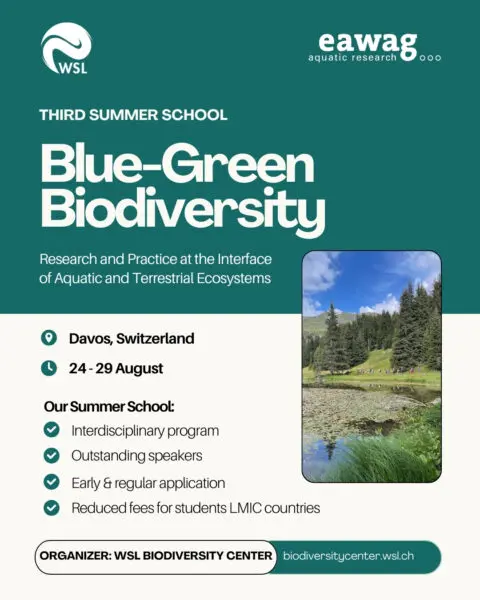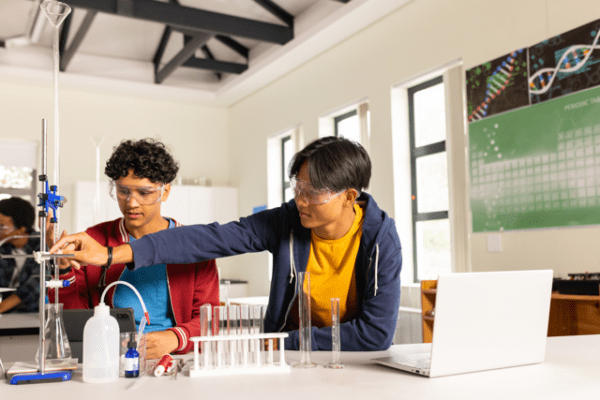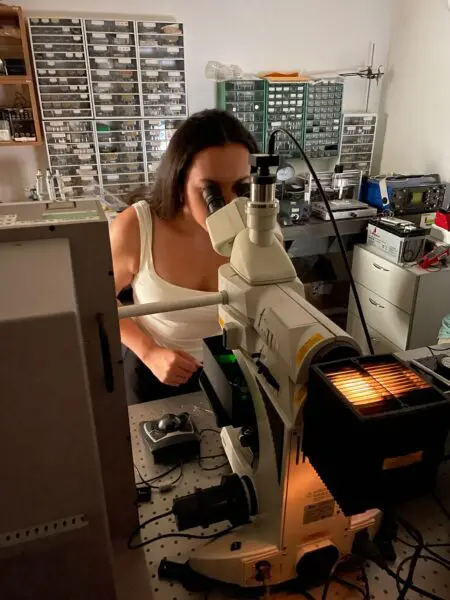
Zurich, Switzerland
Research and Practice at the Interface of Aquatic and Terrestrial Ecosystems
When:
24 August - 29 August 2025
Credits:
2 EC
Read more
Natural Sciences
When:
05 July - 01 August 2020
School:
University of Cambridge International Summer Programmes
Institution:
University of Cambridge
City:
Country:
Language:
English
Credits:
0 EC

The University is renowned for scientific achievement and innovation. We draw on the expertise of senior Cambridge academics to offer courses in a broad variety of scientific fields. This year subjects include astronomy, chemistry, climate change, cryptography, earth science, engineering, evolution, genetics, microbiology, nanobiotechnology, neurobiology, nutrition, physiology, plant science, psychology, quantum mechanics and zoology.
The academic programme
• Two courses per week
• Series of plenary lectures
• Evening talks
• Contact hours: up to 51 hours per term
Programme description
Taught by leading Cambridge academics, courses can be combined to give up to four weeks of study. You may choose a particular track by selecting courses in related subjects, but an interdisciplinary approach is also encouraged. Some courses are taught in the relevant University Department. Many have an integral practical session, or visit exclusive to that course.
"The Science Programme brings you face-to-face with world-leading researchers pushing the boundaries of scientific excellence."
Dr Tom Monie, Joint Programme Director, Science Summer Programme
Courses
You choose one course per week, each has five sessions. The maximum class size is 25 participants. You can write one essay per course for evaluation. The following have been invited to teach courses:
TERM I (5 – 18 July)
Week 1:
Group Pa: 11.15am - 12.45pm
Pa1 - It's all in the genes: introduction Dr Tom Monie
Pa2 - An introduction to social psychology Dr John Lawson
Pa3 - Small worlds: an introduction to microbiology Dr Martin Welch
Pa4 - Nanotherapeutics: how nanobiotechnology is revolutionising healthcare Dr Iris Batalha
Pa5 - Bio-inspired photonics Dr Lukas Schertel
Group Qa: 2.00pm - 3.30pm
Qa1 - Exciting cells: fundamentals of neurobiology Dr Matthew Mason
Qa2 - An introduction to animal behaviour Dr Paul Elliott
Qa3 - An introduction to common biochemical assay techniques Dr Siolian Ball
Qa4 - How does your immune system work? Professor John Trowsdale
Qa5 - Diffraction and crystallography: seeing materials at the atomic level Dr Lewis Owen
Week 2:
Group Pb: 11.15am - 12.45pm
Pb1 - It's all in the genes: intermediate Dr Tom Monie
Pb2 - Autism: a modern epidemic? Dr John Lawson
Pb3 - Adhesive bonding and composite materials: engineering advanced materials Dr Ewen Kellar Dr Chris Worrall
Pb4 - Building blocks of astronomy Dr Sonali Shukla
Pb5 - Antarctica: ocean, ice, animals and climate change Dr Alistair Crame Dr Anna Jones Dr Robert Larter Dr Peter Fretwell
Group Qb: 2.00pm - 3.30pm
Qb1 - Introduction to the chemistry of the transition metals Dr Sally Boss
Qb2 - Evolutionary biology Dr David Applin
Qb3 - Physics at small scales and high speeds Dr Sarah Williams
Qb4 - Understanding the Universe: a multi-wavelength approach Dr Matthew Bothwell
Qb5 - Air pollution and climate science Dr Alex Archibald
TERM II (19 July – 1 August)
Week 1:
Group Pc: 11.15am - 12.45pm
Pc1 - How biotechnologies are changing science and how we live Dr Charlie Morgan
Pc2 - Allergens and other dangers Dr Tom Monie
Pc3 - Sensors: from measurements to data and decisions Dr Oliver Hadeler
Pc4 - From micro to macro: understanding our planet (Double course: to be taken with Qc4) Dr Morag Hunter
Group Qc: 2.00pm - 3.30pm
Qc1 - Cryptography: unlocking the future Dr James Grime
Qc2 - Nature and nurture: understanding the genetics of obesity Dr Neha Agrawal
Qc3 - Solar energy science and technology Dr Paul Coxon
Qc4 - From micro to macro: understanding our planet (Double course: to be taken with Pc4) Dr Morag Hunter
Week 2:
Group Pd: 11.15am - 12.45pm
Pd1 - The medicinal properties of plants Dr Patrick Harding
Pd2 - Disruptive technologies Dr Oliver Hadeler
Pd3 - Unveiling the Universe (Double course: to be taken with Qd3) Dr Robin Catchpole
Pd4 - Human evolution Dr Florin Mircea Iliescu
Group Qd: 2.00pm - 3.30pm
Qd1 - Understanding life: finding clues in the fossil record Dr Peter Sheldon
Qd2 - Materials and our environment: striving for sustainability Dr Darshil Shah
Qd3 - Unveiling the Universe (Double course: to be taken with Pd3) Dr Robin Catchpole
Qd4 - Restless creatures Dr Matthew Wilkinson
Plenary lectures
Lectures from leading Cambridge scientists will explore this theme, as well as providing introductions to the afternoon practical sessions and visits.
Evening talks
Eminent speakers will present a variety of general interest talks. These are shared with students on our other programmes.
Dr Tom Monie
It is recommended that you have studied science to at least high school level. Those with a strong interest, but with little formal science training, are very welcome, but should note the requirements of some courses. Required and/or supplementary reading should also be undertaken before you arrive in Cambridge.
When:
05 July - 01 August 2020
School:
University of Cambridge International Summer Programmes
Institution:
University of Cambridge
Language:
English
Credits:
0 EC

Zurich, Switzerland
When:
24 August - 29 August 2025
Credits:
2 EC
Read more

Jyväskylä, Finland
When:
04 August - 08 August 2025
Credits:
2 EC
Read more

Brno, Czechia
When:
13 July - 26 July 2025
Credits:
4 EC
Read more